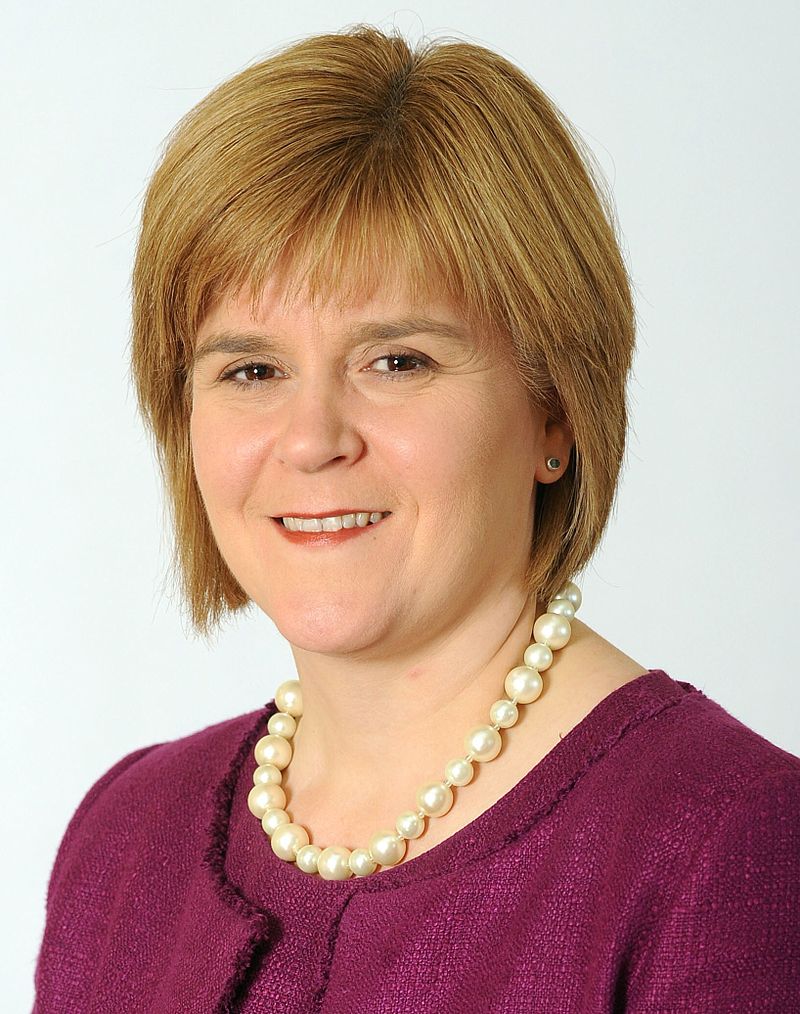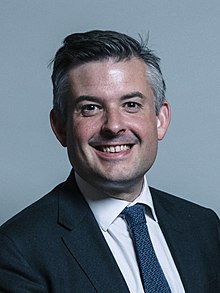Nicola Sturgeon – 2020 Statement on the Coronavirus (21/04/2020)
Below is the text of the statement made by Nicola Sturgeon, the Scottish First Minister, at St Andrew’s House in Edinburgh on 21 April 2020.
Good afternoon everyone. Thank you yet again for joining us for this daily update.
As usual I will start with an update on some of the key statistics about the spread and impact of COVID-19 in Scotland.
As at nine o’clock this morning, I can report that there have been 8,672 positive cases confirmed – which is an increase of 222 since yesterday.
A total of 1,866 patients are currently in hospital with either confirmed or suspected COVID-19 – that is an increase of 57 from yesterday.
A total of 166 people last night were in intensive care with confirmed or suspected COVID-19. That is a decrease of 3 since the figure I reported to you yesterday.
Now while I would still urge caution in interpreting these figures, I do remain cautiously optimistic that firstly, while the numbers being admitted to hospital are still fluctuating on a daily basis, they do appear to be broadly stable – and secondly that the numbers being admitted to intensive care are, at this stage reducing.
And we shouldn’t forget how important that is. It’s not too long ago that we were seriously worried about the potential for our hospital capacity to be overwhelmed by now.
The fact that it is not, is down to the planning that’s been done in the national health service, of course, but more than that it is down to the high compliance with the lockdown restrictions.
So my thanks to all of you for helping us to ensure the NHS has been able to cope, although the work that they do is very difficult and very challenging.
It is of course in the nature of the virus that there will be a lag between numbers being admitted to hospital and intensive care reducing and the numbers sadly dying from this virus reducing. But I hope we will see the latter number also start to reduce in the next couple of weeks.
However, in the last 24 hours, I am afraid that 70 deaths have been registered of patients who have been confirmed as having COVID-19 – that takes the total number of deaths in Scotland, under that measurement, to 985.
I would remind you however, that registration over weekends, and this is a point you have heard me make often before, registrations over weekends still tend to be lower than during the week, so today’s higher figure will, at least in part, be a reflection of that.
I would also remind you that these daily figures are of people who have sadly died after testing positive for this virus.
Tomorrow, National Records of Scotland will again publish its weekly report, which will show the number of people who have died with either presumed or suspected COVID-19 as well, as well as those who have had a positive test confirmed.
And again, as I always do because it is really important always to do this, I want to stress that each of these deaths represents much, much more than a statistic.
They each represent an individual who was loved by family and friends, and whose loss is a source of intense grief. And so again I want to extend my sincere and deepest condolences to everyone who has lost a loved one.
I also want once again to thank all of our health and care workers. The entire country continues to be grateful to you, for the extraordinary work you are doing.
And it’s worth also making the point that there are not just health and care workers, although we understand the importance of the work they are doing, there are essential workers across a range of areas, who are going to work every day right now to keep the country moving, to keep the country going, to keep food on the table, to keep the lights on, and to each and every one of them, let me say thank you as well.
I’ve got three issues I want to speak briefly about today.
The first is that the Government’s Chief Economist, Gary Gillespie published the latest ‘State of the Economy’ report this morning. Gary is here with us today and will say a bit more about that in a few minutes.
This report confirms the fact that dealing with this public health emergency has in itself created an economic emergency.
It estimates that Scotland’s economic output could fall by a third during the current period of social distancing – an analysis which is broadly in line with last week’s projections for the UK as a whole from the Office for Budget Responsibility.
The Labour Market Statistics on employment and unemployment, which have also been published today don’t fully reflect that impact yet, since they relate to the period up until the end of February, so a period before these restrictions took effect.
It is however likely that there has been a significant increase in unemployment since then. For example, since March 15 we know there have been 130,000 new claimants for Universal Credit in Scotland. To give some context to that, in the comparable period last year, that number was 15,500.
The Scottish Government’s immediate focus, working with the UK Government, has been on trying to mitigate the impact of the economic shock on people’s wellbeing, and on protecting the economy’s productive capacity for the future.
Our overall package of support for businesses in Scotland now totals more than £2.3 billion – that includes business rates relief for many sectors, and grants for small businesses.
The Economy Secretary will set out later today in Parliament today how £100 million of funding that we announced last week will be used to support people – for example, people who have become recently self-employed, who might not currently be eligible for other forms of support.
Fundamentally, and this is a point I have made previously, we recognise that in order to protect public health, the Government is making extraordinary demands on businesses and workers.
We are asking you to do unprecedented things, so we recognize that the responsibility and onus is on the Government, to equally do extraordinary things and provide extraordinary levels of support for businesses and workers, and we will continue to do everything we can to meet that challenge.
It’s also worth adding that the health of the economy is, of course, one of the things we must consider as we think about how to emerge from this period of lockdown.
The plans we will publish this week will set out some of the factors we will have to weigh up, as we work towards a point when we can allow some businesses to reopen, albeit with appropriate social distancing measures in place.
But the economic harm being caused by this virus is not in itself a reason to come out of lockdown early. Indeed, dealing with this public health emergency and continuing to suppress the virus is an absolute prerequisite for a sustainable economic recovery.
If we were to move out of lockdown too early, and then have to impose the same level of restrictions again, due to a further rapid rise in cases, that would in itself cause further, and possibly much longer lasting, economic damage.
So these are decisions that we have to strike the right balance on, for the good of the country overall, and that is what we will seek to do.
The work that I’ve mentioned we will publish towards the end of this week will set out in some more detail the principles that will guide us, as we seek to restore as much normality as we can to everyday life, without risking a resurgence of this virus that we know can, and is, doing so much harm.
That point is actually related to the second issue I want to briefly speak on. We have today amended regulations introduced three weeks ago, to restrict public gatherings and non-essential business activities.
Some of these amendments strengthen those regulations, to formalise what is already our established guidance – for example all businesses must take all reasonable measures to enforce the rule that workers are at least two metres apart from each other.
Police, as a result of these amended regulations, will now be able to enforce that power within workplaces – though as with the regulations already in place, we envisage that this will be done initially through dialogue and encouragement. We do not expect police to be routinely patrolling office blocks.
The legislation will also make clear that livestock markets and money advice services, such as foreign exchange services, can continue to operate – and that holiday accommodation businesses can manage online and telephone services for bookings. Not for this period but related to future dates.
However, let me be clear it is not yet possible to say when such establishments will be able to re-open.
I am very grateful, just as I am to every individual across the country who is complying with these restrictions, I am very grateful to all businesses who have acted responsibly by closing their businesses, or by ensuring safe social distancing.
I know how tough these restrictions are for business. However, I would reiterate that they are absolutely essential to public health.
The final issue I want to briefly cover is related to mental health. When I spoke to you last Tuesday, I said then that the Scottish Government would launch a new mental health campaign.
That campaign – the “Clear Your Head” campaign – starts today.
It highlights practical steps that all of us can take to look after our mental health better. For example sticking to a routine, staying active within the current guidelines, keeping in touch with people, and taking a break from news or social media from time to time.
It also points people to places where you can get help and advice. For example, NHS Inform and helplines including NHS24, Breathing Space, the Samaritans, and the Scottish Association for Mental Health.
What the campaign recognises is that the current lockdown is really tough for everyone. Everyone will be experiencing it differently but it is tough for everyone without exception. It is okay not to be feeling okay, at times right now.
So all of us need to look out for each other – to show kindness, compassion and solidarity even as we stay physically separate.
We should all also do what we can to look after our own mental health, and the campaign provides good advice on that.
But if you need help, please reach out for it. Support is available, and the campaign that will launch today will show you where and how you can access that support.
I’m about to hand over briefly to the Chief Medical Officer and then to the Chief Economist, who will say more about the State of the Economy Report.
Before I do that, however, just let me again emphasise our key public health messages.
Because it is really important if we’re to see that continued downward trend in people in intensive care, leading to that downward trend in the number of people dying, we must all comply with these restrictions.
Stay at home, unless you are going out for essential purposes, such as food or medicine, or exercising.
If you do go out, stay two metres away from other people, and don’t meet up with people from other households.
Wash your hands regularly and thoroughly.
By doing all of that you are helping us make sure that we suppress this virus and bring forward that time where we can restore some normality.
Now as I keep saying, and I will keep saying, these restrictions are tough, and they will get tougher, not easier. I know everybody is feeling that increasingly. But they are essential, and as some, if not all of the statistics that I’ve given you today show, they are making a difference.
By staying home, we are helping to slow the spread of the virus, we are as I have talked about already, protecting the NHS, and we are saving lives. So thank you once again to all of you for cooperation and compliance.



